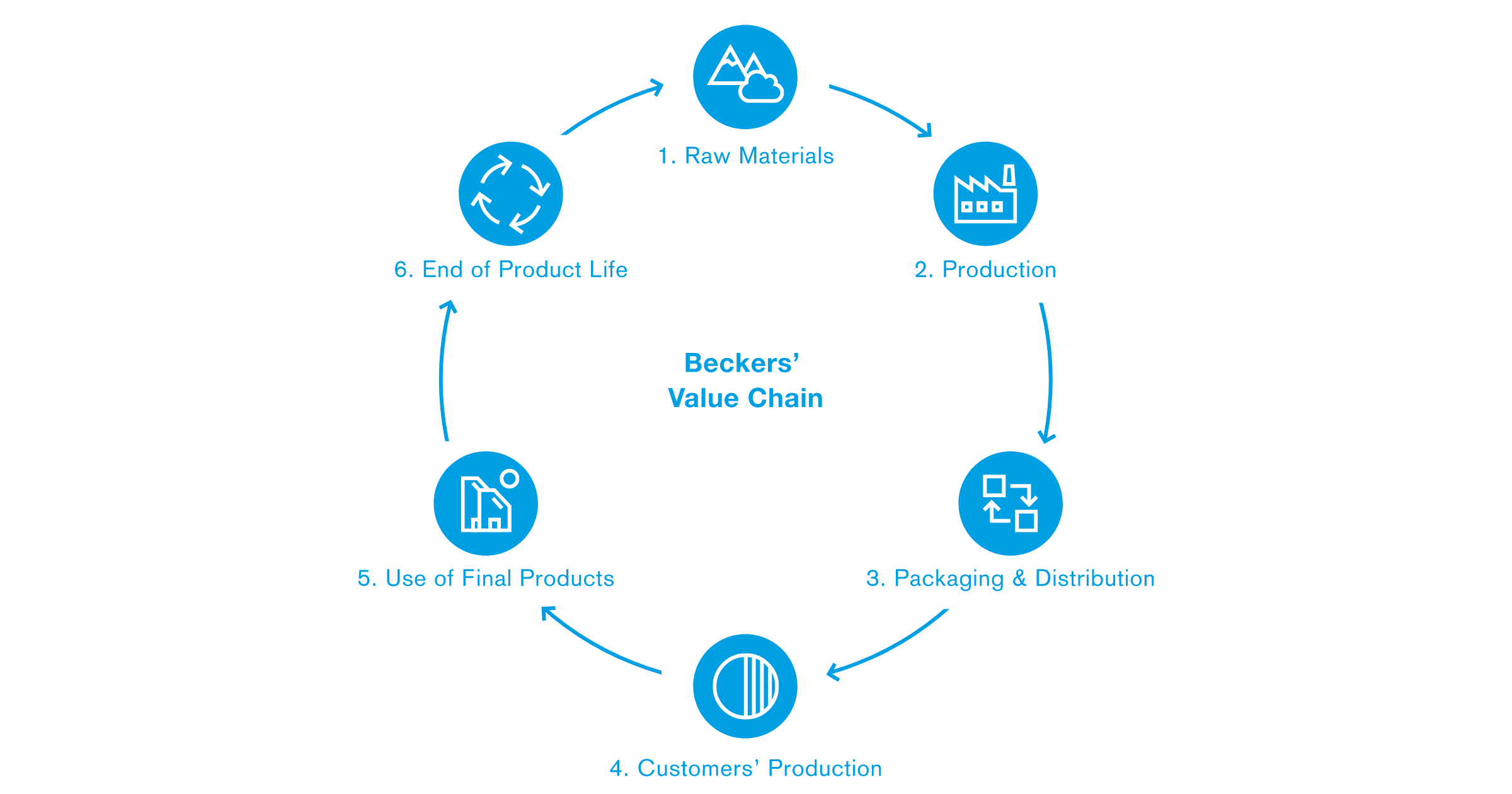Solar pilot lights the way for responsible sourcing
Sharing best practices between Beckers facilities is a strong success driver for us. In November 2021, the Tarnów facility in Poland started producing renewable electricity with its own solar photovoltaic energy system. This is expected to pave the way for similar systems at Beckers sites.
GRI 302–1
Increasing the share of renewable electricity at our sites
Our site in Germany moved to green electricity in 2020, while the sites in France, the United States and Poland did so in 2021. Where renewable-based power from the grid is available, this is an easy step to take. In countries where this is not so easy, we are looking into other solutions such as installing our own solar stations like the one we already have at our site in Malaysia and now in Poland.
Paving the way with a solar photovoltaic energy system in Tarnów
The 112-panel 50 kWp system at the Tarnów facility in Poland is expected to annually generate around 58 MWh. This is our first step towards implementing new energy systems at Beckers facilities. Based on our experience at the Tarnów facility, we are currently developing several projects around the globe to achieve our objective to secure 70 percent of our electricity from renewable sources by 2030.
“As part of our 2030 Sustainability Strategy for Tarnów, we have begun the installation of solar panels in several phrases,” says Piotr Smiatek, Operations Director, Beckers Poland. “This is our first phase that will allow us to evaluate the system’s performance as we consider expanding this system and installing new systems at other Beckers facilities in the coming years.”
Significant reduction of carbon footprint
By sourcing our own renewable electricity or by producing our own clean energy on site, we can significantly reduce the carbon footprint of our operations.
“The estimated solar power generation from our solar system initially covers about 3 percent of the Tarnów facility’s annual electricity consumption,” explains Smiatek. “But on the other hand, it is equivalent to powering all the lighting of the Tarnów production hall and the warehouse, so it is definitively a positive step forward in our sustainability journey.”
Over the 25-year lifespan of the system, it will avoid the generation of 1,450 tons of CO2, which is equivalent to the emissions of going almost 200,000 km by car each year for 25 years.
Both environmental and financial benefits
Besides producing carbon-free electricity and avoiding the generation of greenhouse gasses, the system also makes good financial sense. The investment is expected to have a payback period of approximately eight years and will continue to generate free renewable energy for around 17 years after the investment has paid for itself.
Vietnam Solar Street Lights Pilot Project
Beckers in Vietnam started using a sunlight level sensor to increase the brightness delivered and efficient use of electricity at the same time. Instead of switching the lights on and off in a fixed interval, the solar lights work on the principle of self-illuminating at night and turning themselves off during the day to charge the batteries. The lighting coverage range of the new system is wider and brighter than the old one (400W instead of 100W) and at the same time saves electricity costs as well as maintenance needs. This new system is successful and promotes the use of renewable electricity as well as an electricity saving mindset throughout Beckers Vietnam, serving as a benchmark for the entire Beckers world.









